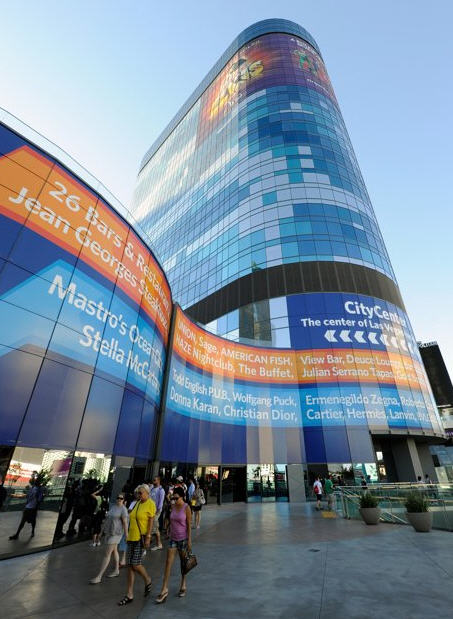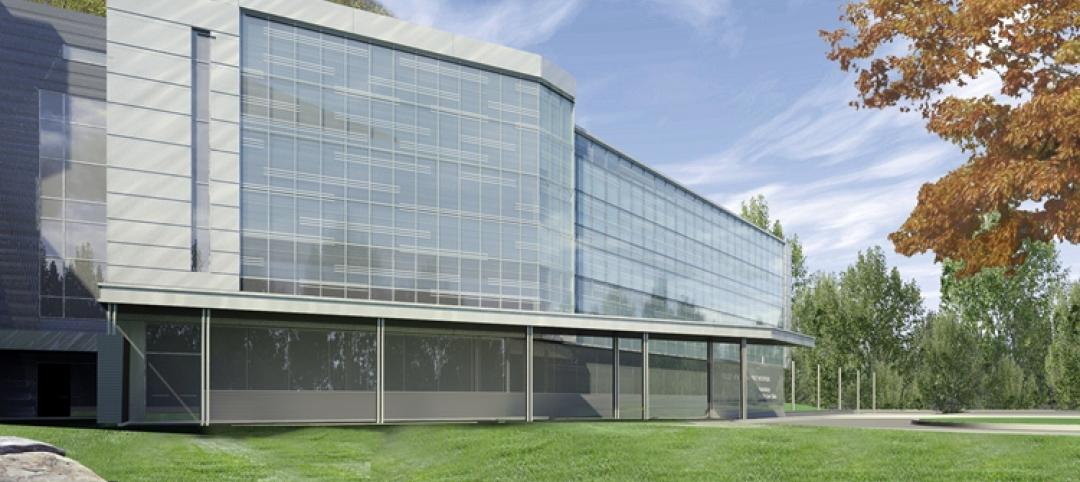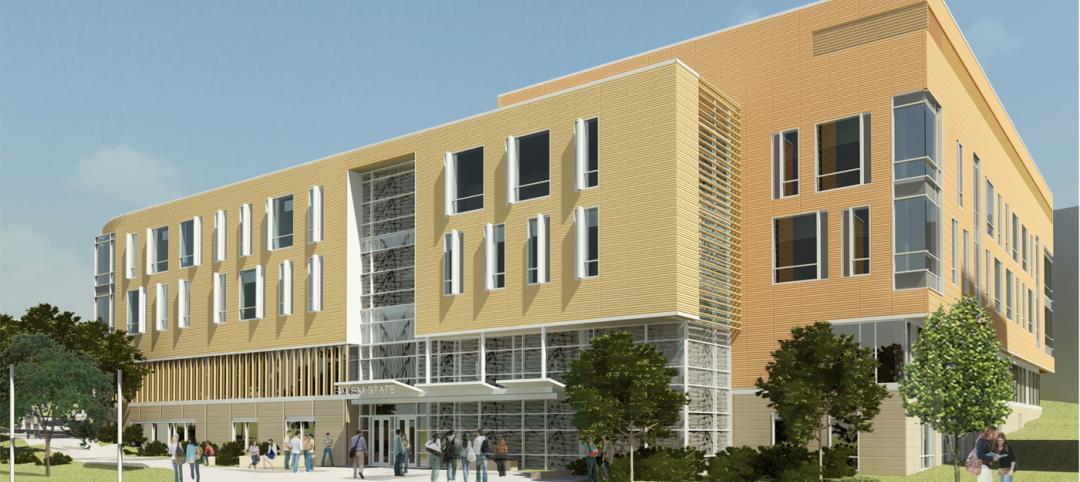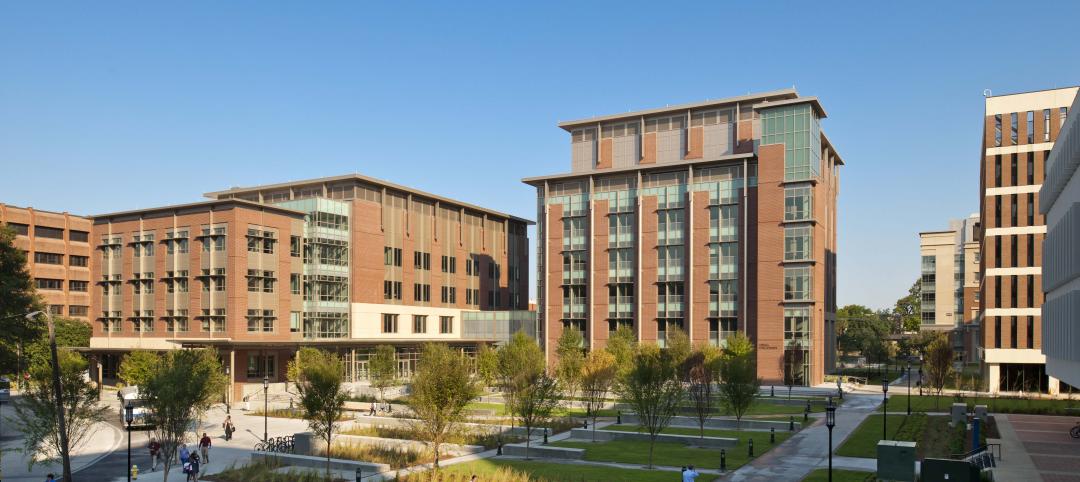The hearing over what to do with the unfinished Harmon Hotel began earlier this week with a legal nod toward Las Vegas' penchant for spectacular implosions.
Attorneys for a couple of the contractors on the project in the CityCenter complex argued for letting it stand at least until a broader trial over construction defects and determining financial responsibility begins in February. Anything less would make a fair hearing impossible, they said.
"If this building (Harmon) falls, it will travel around the world," said Jeffery Garofalo, representing Ceco Concrete Construction, referring to the expected news coverage. "It may poison the jury pool and be highly prejudicial" because so many people would associate the Harmon with horrible contractor performance.
But MGM Resorts International Inc., the half-owner and developer of the $8.5 billion CityCenter, argued public safety must come first. Nearly a year ago, the Clark County Building Division raised concerns that numerous building code defects could cause the 26-floor building to collapse in an earthquake. Last August, a CityCenter study concluded that demolition made more sense than repair.
"We're here in this courtroom today, about four years after the first safety-threatening violations were discovered," CityCenter attorney Steve Morris said. "Since then, nothing has been done."
Contractors have scheduled their own expert witnesses, who are expected to say computer modeling that prompted earthquake concerns was riddled with flaws. Perini Building Co. Inc., the general contractor, has offered in the past to repair the Harmon as the best solution. The hearing is expected to continue through Thursday.
Contractors want to preserve the Harmon as possibly the world's largest trial exhibit so they can conduct physical tests to rebut allegations of pervasive shoddy workmanship. CityCenter has so far provided raw data about mistakes, but not a final list that would explain the problems. Until then, the contractors say, they don't know exactly which tests to conduct.
The court-imposed deadline for what is called destructive testing, where small sections of the building are demolished to view the underlying work, has already passed. Morris contended that the contractors already had ample opportunity to gather any evidence they needed.
Morris also tried to dispel the idea that MGM Resorts had used its political muscle to prod the county into taking its side.
"There aren't any secrets here," he said. "There aren't any smoke-filled back rooms where conspiracies are being developed."
He said that the demolition bill would run about $30 million. Nearly $280 million was spent on the Harmon's never-finished construction.
The larger issue underlying the sprawling case, which brought more than two dozen attorneys to the courtroom of Clark County District Court Judge Elizabeth Gonzalez, involves whether Perini should be paid its approximately $500 million fee or whether CityCenter is owed damages for a job poorly done.
The testimony began with CityCenter consulting engineer Chukwuma Ekwueme methodically showing photo after photo of parts of the Harmon, where he and his team had chipped away the concrete pillars and beams to examine the steel reinforcing bars inside. Through dozens of examples, he pointed out construction errors such as missing or poorly spaced bars, which could contribute to structural failure.
His work involved taking more than 10,000 photographs and writing out 1,000 pages of field notes, he said. BD+C
Related Stories
| Feb 29, 2012
Construction begins on Keller Army Community Hospital addition
The 51,000 square foot addition will become the home for optometry, ophthalmology, physical therapy, and orthopedics clinics, as well as provide TRICARE office space.
| Feb 29, 2012
Carvalho appointed Shawmut Safety Director
He has been a driving force behind multiple safety-orientated initiatives at Shawmut, including Safety Week, the creation of an online safety manual, and the implementation of a new safety reporting and tracking system.
| Feb 29, 2012
Shepley Bulfinch selected to design new Children’s Hospital of Buffalo
The firm was selected because of their past experience in designing clinically complex facilities that emphasize patient- and family-centered care and operational efficiency as well as distinctive architectural forms for many other children's and women's hospitals.
| Feb 28, 2012
Roofing contractors recognized for workmanship
Sika Sarnafil announces Project of the Year winners; competition highlights visually stunning, energy efficient, and sustainable roofs.
| Feb 28, 2012
Waste Management awards companies for sustainable construction
This recognition, highlighting sustainable performances within the construction industry, looks to celebrate the builders who achieved important sustainability milestones in 2011, as determined by Waste Management’s online Diversion and Recycling Tracking Tool.
| Feb 28, 2012
Salem State University Library & Learning Commons topped off
When it opens to students in the fall of 2013, the $60 million facility will offer new archival space; circulation and reference areas; collections; reading spaces; study rooms; instruction labs and a Dean’s suite.
| Feb 28, 2012
More than 1,000 have earned EDAC certification since 2009
Milestone achieved as evidence-based design becomes a top 2012 strategy for healthcare organizations.
| Feb 28, 2012
McCarthy completes second phase of San Diego’s Scripps Hospital
Representing the second phase of a four-phased, $41.3 million expansion and remodeling project, the new addition doubles the size of the existing emergency department and trauma center to encompass a combined 27,000 square feet of space.
| Feb 28, 2012
LUMEnergi names Weinbaum president and CEO
Weinbaum’s experience spans communications, nanotechnology, electronics components, consumer products, semiconductors, software, wireless and lighting.
| Feb 28, 2012
Griffin Electric completes Medical University of South Carolina project
The 210,000-sf complex is comprised of two buildings, and houses research, teaching and office areas, plus conference spaces for the University.

















